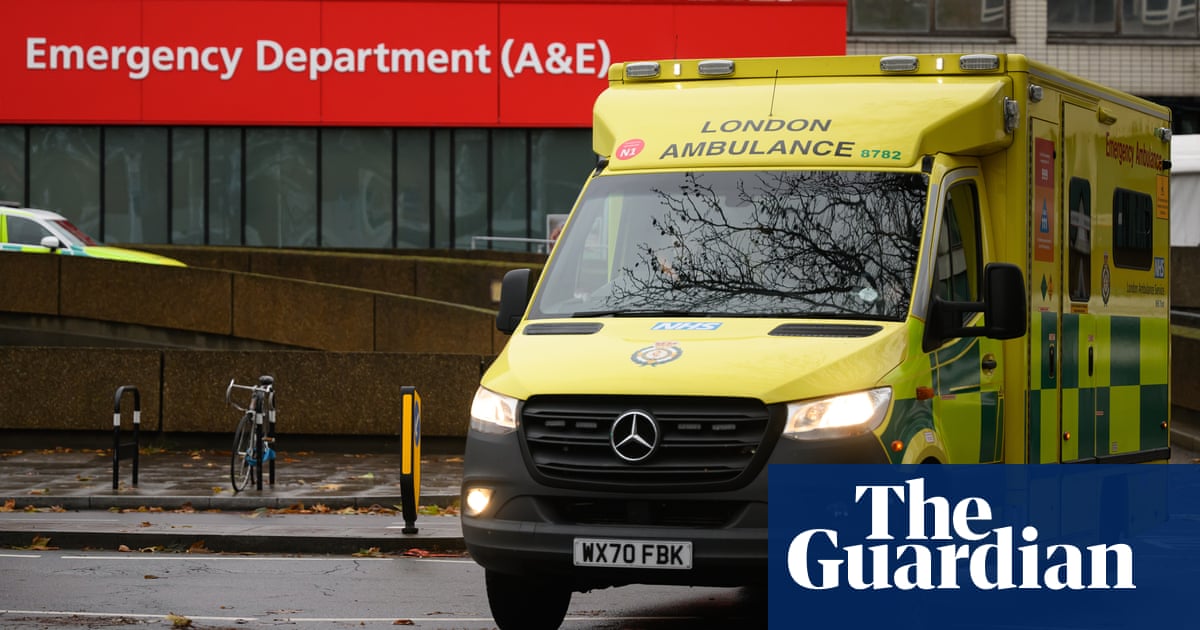
The number of children in mental health crisis has reached record levels in England, analysis of NHS data by the mental health charity YoungMinds shows.
For the first time, urgent referrals of under-18s to mental health crisis teams reached more than 3,500 in May, three times higher than in May 2019. And in the year to March 2023 there were 21,555 urgent referrals to mental health crisis teams, up 46% on 2022, the charity found.
These are children with the most acute mental health symptoms, who might otherwise need to go to hospital for psychosis, severe self-harm or suicide attempts.
In addition to the 3,732 urgent referrals, the NHS monthly data reveals that the number of children and young people undergoing treatment or waiting to start care also reached new records, with 466,250 open referrals to children and young people’s mental health services (CAMHS) in May.
Laura Bunt, the chief executive of YoungMinds, said the figures were “indicative of a system that is broken and a government that has refused to listen to young people demanding change”.
“We are now in a mental health emergency and the government must get a grip on the scale of this crisis. Many young people are having to wait months and years to access help, while many others are told they don’t meet the threshold for a referral to mental health services. No young person should be left waiting for help while their mental health worsens.”
The new data coincides with the publication of an interim report on the government’s promised major conditions strategy, which aims to manage cancer, musculoskeletal conditions, chronic respiratory diseases, mental ill health and dementia more effectively. This strategy will replace the long-term mental health plan, which was due to be published earlier this year. But YoungMinds said abandoning the 10-year mental health plan had “further delayed government action for young people’s mental health” and that the new strategy “falls far short of what’s needed”.
“The interim report on the major conditions strategy fails to provide any clarity on how the government plans to tackle the growing emergency in young people’s mental health,” said Bunt. “It does not cite mental health as a main concern for young people’s health, nor does it provide any confidence that this strategy will improve mental health services for young people.
“Young people’s mental health needs to be at the heart of this strategy and we need to see a clear plan on how they are going to drive down prevalence.”
Responding to the findings, the Liberal Democrat education spokesperson, Munira Wilson, called for urgent action. “It is shameful that thousands of children in dire need of help are struggling to access mental health services. This cannot go on,” she said.
“This Conservative government has run our NHS into the ground and it is children in need who are paying the price.”
Dr Elaine Lockhart, the chair of the Royal College of Psychiatrists’ faculty of child and adolescent psychiatry, said the mental health crisis was having “a devastating impact on the wellbeing of our children and young people”.
“Services are doing their best to meet this rise in demand for treatment but a lack of staff and resources is making it difficult for them to see patients quickly. This is contributing to a harmful spiral in which many young people are being placed on long waiting lists, which can lead to their symptoms becoming more serious over time and them eventually presenting to services in crisis.”
The children’s commissioner, Dame Rachel de Souza, said: “I am really concerned about these latest figures. We must make sure that support is available to children early, that there is a focus on support before issues escalate, and that care is available to all children who need it and in a timely manner. I want to see mental health support teams delivered in every school by the end of 2025 and a clear-eyed focus on the specific needs of children in government mental health investment.”
A spokesperson for the Department of Health and Social Care said: “We’re investing record sums of funding to boost children’s mental health support, and we’re extending coverage of mental health support teams to at least 50% of pupils in England by the end of March 2025.
“We’re also investing an additional £2.3bn a year in NHS mental health services by March 2024, so an additional 345,000 children and young people will be able to access NHS-funded mental health support quicker.
“Our landmark major conditions strategy will focus on six major groups of conditions – cancers, mental health, cardiovascular disease (including stroke and diabetes), dementia, chronic respiratory diseases, and musculoskeletal disorders – that account for about 60% of ill health and early death in England.”
In the UK, the youth suicide charity Papyrus can be contacted on 0800 068 4141 or email pat@papyrus-uk.org, and in the UK and Ireland Samaritans can be contacted on freephone 116 123, or email jo@samaritans.org or jo@samaritans.ie. In the US, the National Suicide Prevention Lifeline is at 988 or chat for support. You can also text HOME to 741741 to connect with a crisis text line counselor. In Australia, the crisis support service Lifeline is 13 11 14. Other international helplines can be found at befrienders.org












